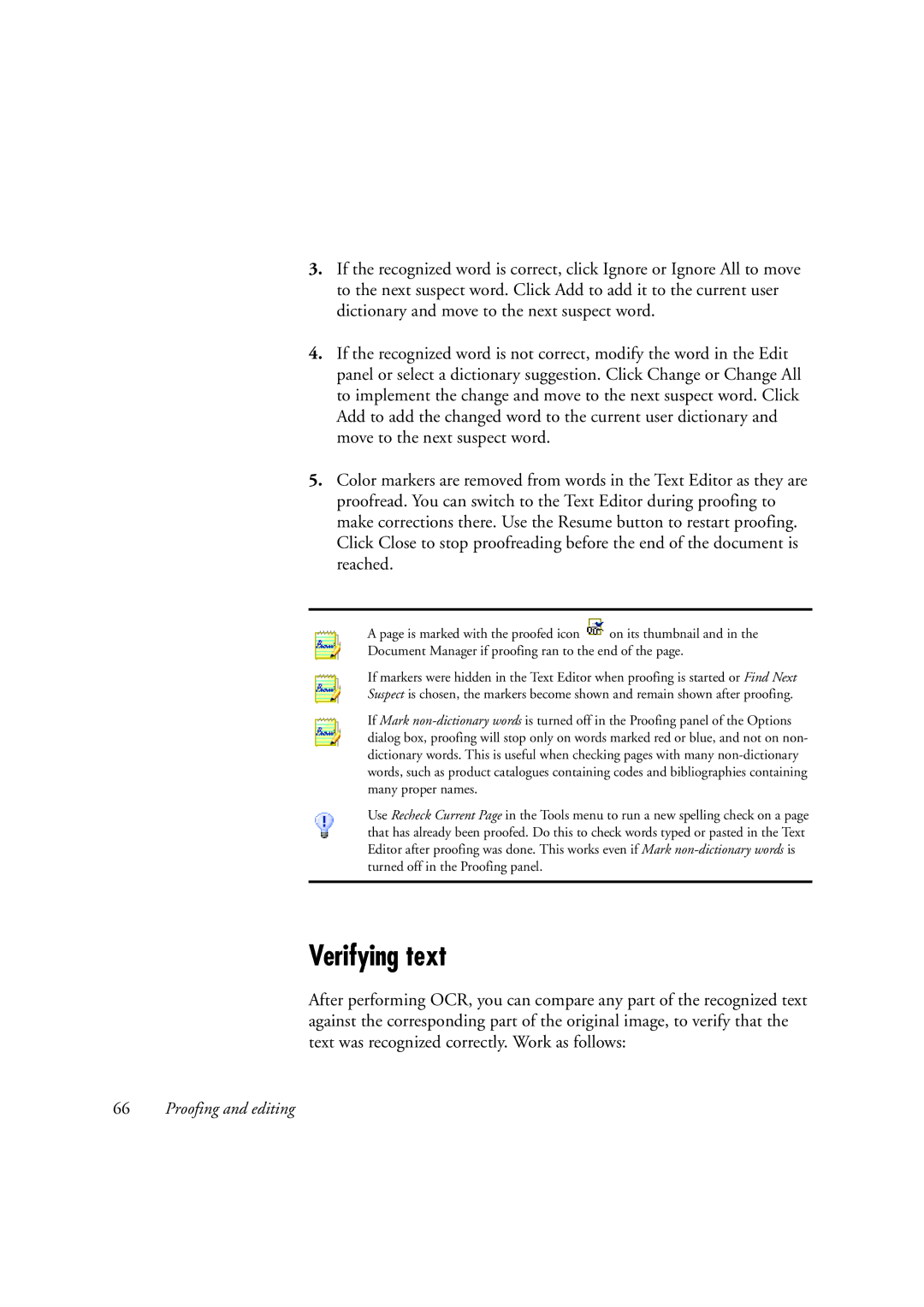
3.If the recognized word is correct, click Ignore or Ignore All to move to the next suspect word. Click Add to add it to the current user dictionary and move to the next suspect word.
4.If the recognized word is not correct, modify the word in the Edit panel or select a dictionary suggestion. Click Change or Change All to implement the change and move to the next suspect word. Click Add to add the changed word to the current user dictionary and move to the next suspect word.
5.Color markers are removed from words in the Text Editor as they are proofread. You can switch to the Text Editor during proofing to make corrections there. Use the Resume button to restart proofing. Click Close to stop proofreading before the end of the document is reached.
A page is marked with the proofed icon ![]() on its thumbnail and in the Document Manager if proofing ran to the end of the page.
on its thumbnail and in the Document Manager if proofing ran to the end of the page.
If markers were hidden in the Text Editor when proofing is started or Find Next Suspect is chosen, the markers become shown and remain shown after proofing.
If Mark
Use Recheck Current Page in the Tools menu to run a new spelling check on a page that has already been proofed. Do this to check words typed or pasted in the Text Editor after proofing was done. This works even if Mark
Verifying text
After performing OCR, you can compare any part of the recognized text against the corresponding part of the original image, to verify that the text was recognized correctly. Work as follows:
66Proofing and editing
